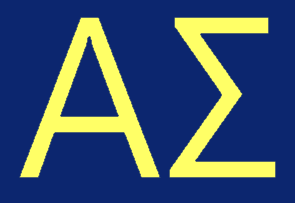Taking a Chance
Disclaimer: This whole article is going to be version and family rule dependent. I'm going to assume that you are using my set (a modern UK version) and the normal rules. If you use house rules see here for why you are wrong, but if you insist then you should take the chance card even more often than I suggest in this article.
In the community chest stack there is a card like this:
In this article I'm going to try and cover the main things that you should evaluate when looking at this card. We are trying to evaluate which side is the good deal and the easiest place to start is with the chance cards which literally just give or take away money. In my set there are 16 chance cards of which 5 give you money in some way. Winning a crossword competition for £100, getting a dividend from the bank worth £50 or maturing on your building loan netting another £150. The other two are advance to Go which gives you £200 (again read the article I linked above) and the get out of jail free card which is essentially £50 in all but name. This gives a total of £550. I'm going to add to this the £10 missed fine that you get for avoiding the community chest for £560.
On the other side the straight up negative ones are a speeding fine for £15, school fees for £150, a "drunk in charge" of £20 and the go to jail which pretty much costs you £50. So far this is £235 and so putting this together with the gains you get 560 - 235 = £325.
The remaining cards are harder to classify. The go back three spaces either sends you somewhere neutral, sends you to jail (costing £50, plus an opportunity cost of being close to Go) and one which sends you back to Mayfair so that you can pass go again. This you can do individual analysis on depending on which square you are working out.
The next type to analyse are the advance cards. They can send you to Pall Mall, Marylebone Station, Trafalgar Square or Mayfair. At this point we are going to divide the game into early game and late game. At the start most of these advance cards take you to something you can buy (or at worst spend a small fee staying at) while taking you at least some of the way towards the next £200 salary. These are what tip the take a chance option heavily into your favour and they give you £200 that turn around 1/3 of the time. Let's call it around £200 x 1/3 of the time × 4 cards = £270 ish, but this is very rough, but it comprises about the same amount of contribution as before making a total of about £600 worth of value in the chance deck (or about £40 per card).
However the final two cards are the street repairs cards. They come in two cost sizes, one more expensive than the other. What you should do is add up the potential costs and weight them against the baseline 600. For example, if you have 6 houses then that adds to a potential of £240 on one card and £150 on the other. That is already £390. Next check the 4 properties that are on the advance card and check whether one of them tips the price over £600. The general rule of thumb is that if any of them are already at 3 houses then you should probably just pay the fine.
Here's a handy formula for working out your cost of buildings for getting to the baseline: 65 x house + 225 x hotel. So having even 8 houses will probably already tip it and 9 definitely does.
In summary: take a chance until either you, or one of the properties Pall Mall, Marylebone Station, Trafalgar Square and Mayfair have 3 houses on a square. This is only a guideline and the maths is a bit woolly because there are so many cases, but it should be the correct choice in the vast majority of games.







